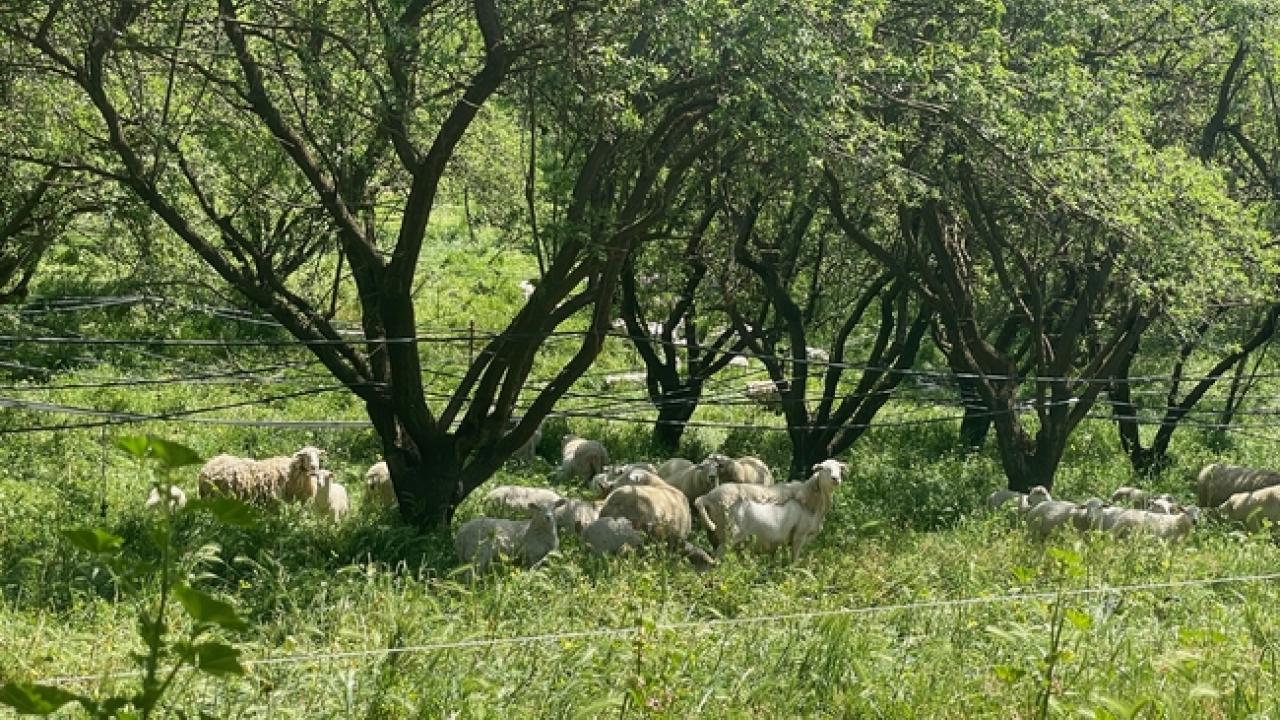
USDA Awards $2 Million to Study Livestock Grazing in Organic Orchards
This article originally appeared on the UC Agriculture and Natural Resources website.
Grazing sheep and other livestock can help convert cover crops to fertilizer for orchard crops. To develop best management practices, the University of California and The Organic Center are collaborating on research to help organic orchard growers safely incorporate livestock grazing into their farming practices. The project is funded by a $2 million grant recently awarded through the U.S. Department of Agriculture's Organic Agriculture Research and Extension Initiative research program.
Interest in grazing livestock on cover crops in nut orchards has increased in recent years. However, research is needed to determine the best way to improve soil health and pest suppression, and to address concerns about food-borne pathogens and food safety.
“Organic farmers typically follow the USDA National Organic Program standards for raw animal manure, waiting 90 to 120 days between incorporating raw manure into the soil and harvesting the crop,” said Alda Pires, UC Cooperative Extension urban agriculture and food safety specialist in the School of Veterinary Medicine at UC Davis.
“Little research has been conducted to verify adequate waiting periods to reduce contamination risks in integrated crop-livestock production systems,” she said. “This research will fill the knowledge gap and facilitate the development of science-based food safety guidelines for grazing small ruminants in orchards.”
For this four-year project, “Influence of Orchard Grazing on Soil Health and Pest Control While Mitigating Food Safety Risk,” the scientists will study organic almond, walnut and pistachio orchards in two distinct nut-growing regions in California – the Sacramento Valley and San Joaquin Valley. The scientists will assess the effects of livestock grazing of cover crops on bacteria populations, soil health, pest control and economics.
